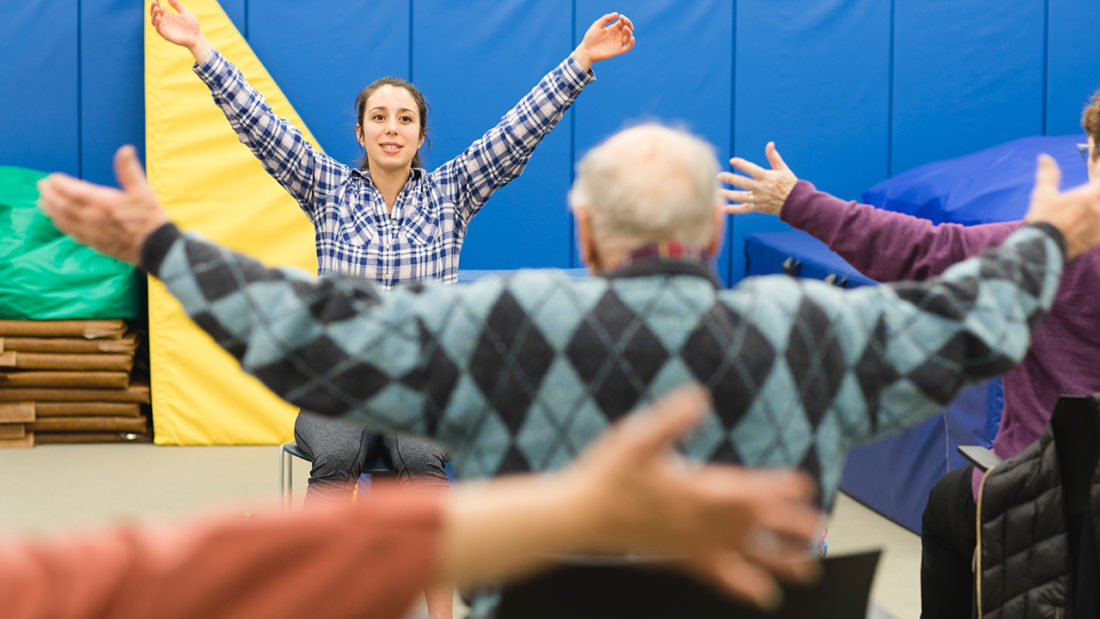Quinnipiac University has joined the Age-Friendly University (AFU) Global Network, which consists of 51 institutions of higher education around the world that have endorsed the AFU’s 10 principles and have committed to becoming more age-friendly in their programs and policies.
In addition to continuing active programs of teaching, clinical practice and research related to aging, Quinnipiac’s Interprofessional Coalition for Aging Inclusive Leadership/Learning Endeavors (QUIC-Agile) is working with administrators, deans, faculty and staff to bring the 10 principles of an Age Friendly University alive across campuses.
“QUIC-Agile began meeting in 2018 and we are prepared to nurture this initiative,” said Lisa Toussaint, a coalition steering committee member and clinical professor of occupational therapy. “Many members of the Quinnipiac faculty have advanced degrees, training and board-certifications in gerontology and geriatric professions.”
The core principles are to: encourage the participation of older adults in all the main activities of the university, including educational and research programs; promote personal and career development in the second half of life and to support those who wish to pursue second careers; recognize the range of educational needs of older adults; promote intergenerational learning to facilitate the reciprocal sharing of expertise between learners of all ages; widen access to online educational opportunities for older adults to ensure a diversity of routes to participation; ensure that the university’s research agenda is informed by the needs of an aging society and to promote public discourse on how higher education can better respond to the varied interests and needs of older adults; increase the understanding of students of the longevity dividend and the increasing complexity and richness that aging brings to our society; enhance access for older adults to the university’s range of health and wellness programs and its arts and cultural activities; engage actively with the university’s own retired community; and ensure regular dialogue with organizations representing the interests of the aging population.
Quinnipiac offers a major and minor in gerontology and integrated gerontological curricula for occupational therapy, physical therapy, nursing, social work and medicine students as well as academic programs and collaborations of interest to all ages. Recent university initiatives include a local assisted living “student-in-residence” program, an AARP volunteer-hosted “Disrupt Aging” course, digital tutoring for older adults, a theatrical offering to reduce stigma related to dementia, a fall-prevention simulation program for older adults in the nursing and health sciences lab, film screenings that included “Lives Well Lived” and “Gen Silent.”
Quinnipiac’s coalition steering committee also includes: Karen Blood, clinical assistant professor of physical therapy; Nicole Fidanza, clinical assistant professor of occupational therapy; Stephanie Jacobson, associate professor of social work;Sheila Molony, professor of nursing; Nicholas Nicholson, professor of nursing; andCatherine Solomon, professor of sociology.
